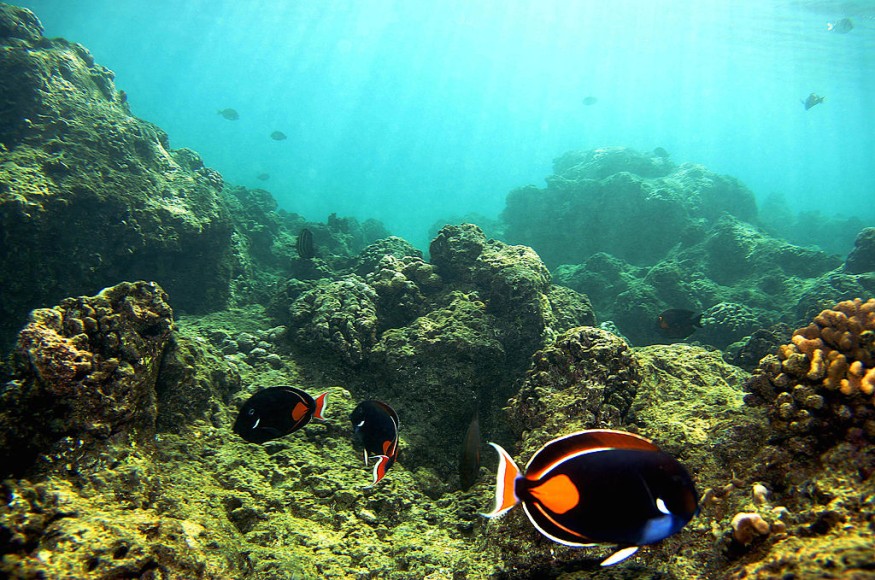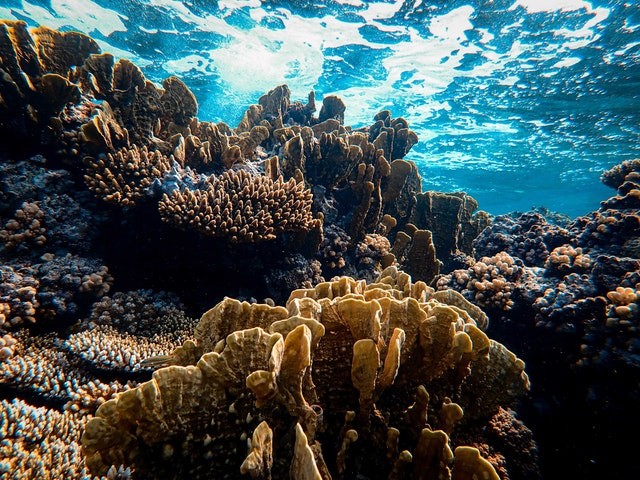With rapidly changing habitats resulting from human activities, it is critical to forecast what will happen to marine creatures, particularly fish populations, to maximize our conservation and management efforts.
According to recent findings, some fish species that evolve faster may have a more flexible manner of dealing with ocean acidification, which might assist these species to retain their population size and variety.
However, this process will be challenging for some other species to grow slowly once the ocean acidification level exceeds their tolerance limits. The study was just published in the journal Global Change Biology.
Oceanic Acidification

According to the National Oceanic and Atmospheric Administration (NOAA), the continued uptake of anthropogenic atmospheric CO2 by the oceans, a process known as ocean acidification; global ocean surface pH is expected to decrease.
Predicted OA circumstances influence several marine fishes' physiological performance, growth, survival, and essential behaviors for the fish's survival, according to a decade of laboratory tests.
Researchers went to a remote part of the planet to study in situ exposure to elevated partial pressures of carbon dioxide (pCO2, the amount of carbon dioxide dissolved in water) to predict how wild fish will cope with these environmental conditions expected to exist around the world by the end of this century.
Dr. Celia Schunter of The University of Hong Kong's (HKU) School of Biological Sciences (area of Ecology and Biodiversity) & The Swire Institute of Marine Science, in collaboration with researchers from The University of Adelaide, James Cook University in Australia, IRD Institute in New Caledonia, and Okinawa Institute of Science and Technology Graduate University in Japan, discovered the basis for variability across fish species.
Carbon in the Water

CO2 seeps from volcanoes may be utilized as natural laboratories, where CO2 rises from the substratum and acidifies the surrounding seawater to levels close to, or occasionally exceeding, the forecasts for ocean acidification by the end of the century.
Six adult coral reef fish species, including damselfishes and cardinalfish, were sampled, tissues were extracted, analyzed, and sequenced for their cellular response to elevated CO2 in their brains from a reef within the Upa-Upasina CO2 seep in Papua New Guinea and an adjacent reef (500 m distance) with ambient pCO2.
The six fish species studied are common coral reef fish with somewhat varying ecologies, such as changes in parental care and whether they are active during the day or night, to extend the trends identified to other fishes to some extent.
High pCO2 generated similar molecular responses linked to circadian rhythm and the immune system in various species, indicating that these are significant processes that are influenced by elevated CO2. Circadian rhythms govern our 24-hour biological clocks and may be found in humans, animals, and plants.
They control our sleep patterns and our metabolism, indicating that the circadian rhythm core genes influence a wide range of downstream activities and our behavior. With increased CO2, the Circadian genes seemed to trigger gene expression changes in other genes in the brain, allowing the fish to react more flexibly to the CO2.
Immune modulation appears to play an additional essential role in responding to high CO2. Surprisingly, while this was true for various reef fish species, nocturnal species showed an increase in immune genes, while other species had immune genes suppressed by high CO2. This phenomenon hasn't been studied before, and it suggests that nocturnal and diurnal animals may react differently, which calls for more research.
Discoveries
This study discovered that some wild fish species may have evolved molecular mechanisms to cope with increased CO2 levels expected by the end of the century due to fast development. The study team's next aim is to see if the findings are replicated in other ecosystems.
Meanwhile, as the amount of ocean acidification reaches beyond their ability to regulate, ocean acidification remains a hazard to fish species that are developing slowly. As a result, limiting the global pH decline is critical to sustaining high fish biodiversity.
Read also: Real Extent of Overfishing: How this Disruptive Behavior Can Cause Irreversible Destruction
For more Environmenta News, don't forget to follow Nature World News!
© 2025 NatureWorldNews.com All rights reserved. Do not reproduce without permission.





